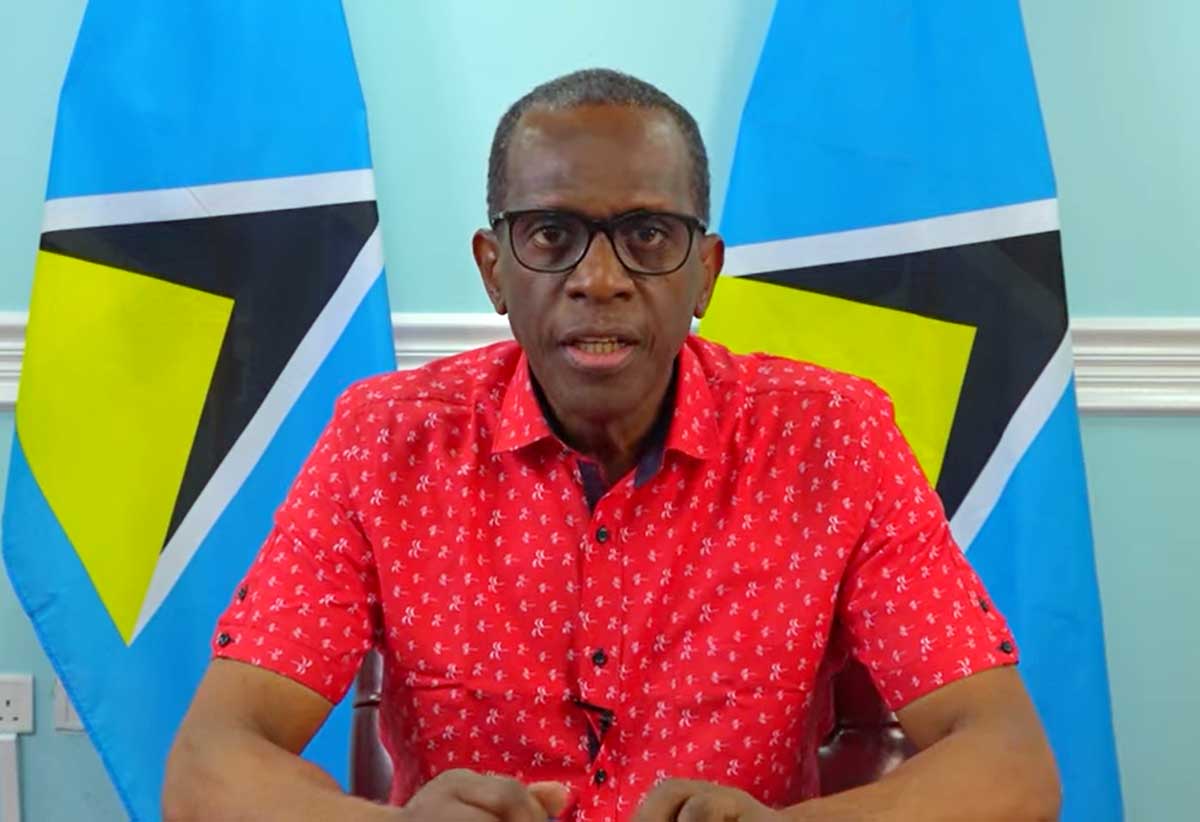
PRIME Minister Philip J Pierre this week called for more advocacy and mitigation among regional territories to better mitigate against the impending hazards of climate change.
As the Caribbean Community (CARICOM) Lead Head for Sustainable Development and Climate Change, Pierre recently met with Dr. Sultan Ahmed Al Jaher, the President-Designate of COP28 in Barbados. The discussions focused on pertinent environmental issues as the region advances preparation for COP28, the United Nations Climate Change Conference, in the United Arab Emirates in November.
He stressed that while the Small Island Developing States (SIDS) are the least polluters in the global sphere, they bear the brunt of the losses and damages caused by climate change phenomenon …
“There is a threat of climate change and it’s not a matter of when it will happen,” he told reporters at a recent media brief.
PM Pierre strongly feels that people need to be more concerned and more focused on the “threat of climate change”. He said there must be more “mitigation methods” in place, stressing the importance of mitigation and adaptation.
At this point, he stated, the SIDS are clamouring for a Loss and Damage policy to more effectively mitigate against the hazards of climate change.
Noting the urgency and gravity of the situation that confronts these smaller countries, Pierre declared: “We are the least of the polluters and we get the worse (deal) …anytime now, we can get up in the morning and there will be no Saint Lucia. That’s the reality.”
Having put forward the case for the CARICOM Heads, at the Barbados meeting, PM Pierre says, the Caribbean expects COP28 to make a “definitive statement towards loss and damage for the SIDS”.
He stressed that there should be a commitment to remit the $100 billion “promised to the region to mitigate and to adapt to climate change …when are we going to be collecting that money, if ever.”
At the last COP meeting, Pierre said, he outlined the dilemma that the region is faced with. “We are the most vulnerable set of islands, as far as climate change is concerned. Not only in the region but in the Indian Ocean, since some of these islands are already below sea level,” he noted.
“So, this is a threat that is real and it is a threat that the people of the Caribbean must be prepared for,” asserted Pierre.
To more succinctly address this issue, the prime minister spoke on the need to establish an insurance coverage policy.
“There is the idea of insurance …it is very important to us in the region and it is something that the press and the country should have on their agenda—the threat of climate change and what efforts we should take to mitigate against climate change,” Pierre said.
While addressing the region’s leaders, at the Barbados summit, Dr. Al Jaber reaffirmed the COP28 Presidency’s commitment to support communities most vulnerable to the impacts of climate change, and to push the international community to close the climate finance gap and address social and economic development in step with climate action.
Dr. Al Jaber said: “The peoples of the Caribbean have been on the front lines of climate change for longer than most. You have been facing some of the harshest climate impacts.
And in a very real sense, your experience represents an early warning system for the rest of the world.”
The COP28 President-Designate emphasized the critical role climate finance will play in the global energy transition, reminding those present that ‘fixing climate finance’ is one of four of his key ‘Action Plan’ priorities for COP28 alongside ‘focus on people’, ‘lives and livelihoods’ and underpinning everything with ‘full inclusivity’.
“As a first step, I have called on donor countries to “show me the money”, when it comes to the long overdue 100-billion-dollar finance pledge. I am also calling for deep, system-wide reform of IFIs and MDBs to make them more responsive to the climate and development needs of the 21st century. In short, all forms of finance must be more available, more accessible, and more affordable,” added Al Jaber.
Dr. Sultan Al Jaber also praised the work of The Bridgetown Initiative, which he noted was “a wake-up call for the global community to make good on past promises and modernize a financial architecture that was built for the last century.”
Spearheaded by Barbados, The Bridgetown Initiative seeks to facilitate access to international financing, an effort that aligns with the COP28 Presidency’s own commitment to modernize global financial infrastructure to support climate action.
Dr. Al Jaber also warned of the importance of striking the “right balance” between mitigation finance and adaptation finance, noting this will be critical as world leaders begin outlining the parameters for a new, collective goal for finance during COP28, and beyond.
“This region knows only too well the human and economic costs of too little finance for climate adaptation and resilience. That’s why I am calling on all parties to double adaptation finance by 2025 and ensure that a substantial portion of all climate finance goes to adaptation in the future,” he said.





![Attendees at the UHC logo and website launch [Photo credit: GOSL]](https://thevoiceslu.com/wp-content/uploads/2026/02/Attendees-at-the-UHC-logo-and-website-launch-380x250.jpg)






![Remnants of an alleged drug boat blown up in a lethal strike by the U.S. military last week surfaced off Canouan on Saturday [Photo credit : St Vincent Times]](https://thevoiceslu.com/wp-content/uploads/2026/02/Remnants-of-an-alleged-drug-boat-blown-up-380x250.jpg)
